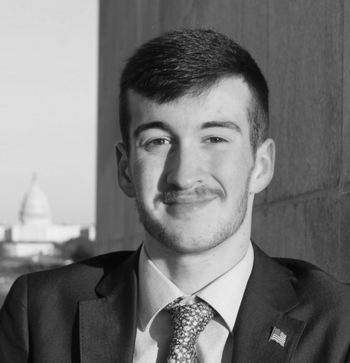'Simple incompetence': MIT alumni blocked from attending virtual speech
Members of MIT’s Free Speech Alliance were unable to attend this year’s John Carlson Lecture after event organizers failed to send them the Zoom link.
This controversy follows another last year in which speaker Dorian Abbot was disinvited after an op-ed of his gained negative attention.
Members of a Massachusetts Institute of Technology (MIT) Free Speech Alliance were allegedly barred from attending this year’s John Carlson Lecture.
MIT hosted the annual lecture on Oct. 20 where invited speaker Jess Adkins spoke to attendees about climate change.
Adkins’ speech focused on “leav[ing] fossil fuels behind” and “find[ing] ways to remove CO2 from the Earth’s atmosphere to avoid the worst outcomes of climate change,” according to the event’s website.
Although the event was free and open to the public, a few members of the MIT community were never given access to the livestream.
Eric Rasmusen, the Communications Committee Chairman of the MIT Free Speech Alliance, alleged that the error was “simple incompetence.”
[RELATED: These are the top 10 worst schools for free speech this year]
“The organizers said they would send an email with the address shortly before the event to everyone who had registered, but neither I nor a friend of mine received ours,” Rasmusen told Campus Reform.
He alleged that the event organizers’ “irrational fear of zoombombing” resulted in them “sabotag[ing] their own events.”
This is not the first time controversy has emerged around MIT’s John Carlson Lecture.
Last year, invited speaker Dorian Abbot, a professor in the Department of the Geophysical Sciences at the University of Chicago, was disinvited from speaking after his op-ed criticizing higher education’s commitment to diversity, equity, and inclusion (DEI) was perceived negatively by the MIT community.
“I am a professor who just had a prestigious public science lecture at MIT cancelled because of an outrage mob on Twitter. My crime? Arguing for academic evaluations based on academic merit,” Abbott wrote.
The MIT Free Speech Alliance was establishedin the wake of Abbot’s disinvitation “to advocate for MIT’s support for free speech, open inquiry, and viewpoint diversity.”
“I was outraged, and surprised that things had reached such a state-- that a speaker [Abbot] was banned not just because he would speak against affirmative action, but because he wasn’t going to speak about it all, but he had once published an op-ed opposing it,” Rasmunsen told Campus Reform regarding the controversy.
[RELATED: EXCLUSIVE: Students walk out of Mike Pence speech]
He then stated MIT should have invited Abbot for the 2022 speech.
“That would have been an implicit admission that the cancellation was wrong, which I think would have satisfied Professor Abbot and the rest of us,” Rasmusen said.
Rasmusen urged Adkins, this year’s speaker, to address the 2021 conflict in his speech but did not hear back.
“I had emailed this year’s lecturer twice with no response. I dislike that kind of evasion of responsibility, so I rewrote my email as an open letter and published it on my Substack,” he explained.
In his letter, he wrote, “I hope to make not just you but other scholars think about the ethics of cooperation with politicized science and to stimulate discussion of what is moral, and what is collaboration.”
Campus Reform reached out to each individual and institution mentioned in the article for comment. Abbott chose not to comment. This article will be updated accordingly.
Follow @thelogandubil on Twitter.

